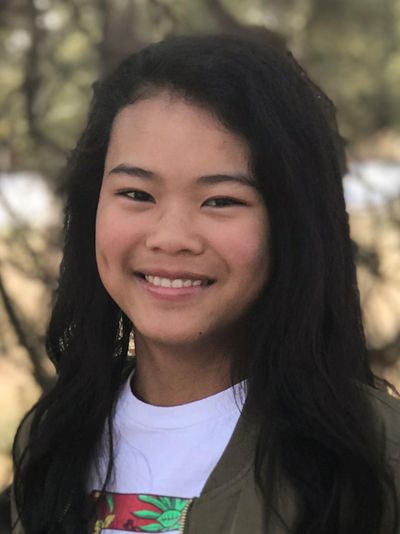Eva Lassman Memorial Art And Essay Contests: third place essay, middle school

The Spokane Community Observance of the Holocaust has announced the top three selections in its 13th annual Eva Lassman Memorial Writing and Art Contests. The contest theme is “Speaking Up for ‘the Other’.”
The contest asked participants to learn about the Holocaust and read about or listen to some of the many stories of survivors who were labeled “the other” by the Nazis, and address two questions:
1. What are the lessons you learned from their stories that had a major impact on you? Why is it important to speak up for those who are considered “the other”?
2. Who are “the other” today? Based on the lessons you learned, what are you motivated to do to speak up for them?
The third place essay in the middle school category follows.
Reaching Out to “the Other”
By Summer Corbett
Eighth grade
Chase Middle School
Imagine a world where people are beaten, tortured and killed just because they are a different religion or look different than most people. This was normal during World War II. Adolf Hitler was the leader of a group of evil people called the Nazis. They blamed the Jews for all the bad things they went through including their defeat in World War I. They believed that Germans were the superior race and Jews and everybody else were below them. They called themselves Aryans. Jewish, Roma (Gypsies), people with disabilities, and others such as Poles, Soviet civilians, blacks and homosexuals had their businesses, houses and farms burned to the ground (encyclopedia.ushmm.org). They smashed their windows and arrested everybody inside of these people’s homes. They sent them off in cattle carts to extermination camps and gassed, shot or burned millions of them. We need to know what happened during the Holocaust so we can prevent it from happening again. In order to do this, we need to know who “the others” are today and how we can help them.
Edith Fox is one of the few survivors of the Holocaust. In 1941, when she was just 13 years old, the Nazis rounded up her family of six. When she arrived in Poland, the Nazis shot her mother right in front of her eyes. She was separated from her father and brothers and never saw them again. She and her friend Leah were sent to work taking care of children in a camp. When they heard the Nazis were coming to their camp, they hid. The Nazis killed everyone in the room they had just left. After hiding for three days, they walked and walked, wanting to get to the Czech-Hungarian border. Leah was killed while attempting to flee, and Edith was recaptured and taken to Auschwitz. One day, guards came and took a group of girls, Edith among them, and put them to work in an ammunition factory where she worked for three years. As the war was ending, Edith was put on a train to starve and die. For three days she traveled on that train. People were stepping on others who were lying on the floor and all around her, people were dying. Finally, Edith couldn’t take any more of it. She jumped off the train and ran until she was in Mala Pevnost, Czech territory. When a Nazi soldier found her, he took her to another camp along with seven other girls. They were put into a room to starve, but only one girl died. Finally, the Russians came to set them free and they were sent to a hospital to recover. After two years, she made it to America where she spent the rest of her life in Buffalo, New York. Edith Fox said, “I wanted to tell my story because I’m afraid people are forgetting. We can never forget what happened. We can never let it happen again” (buffalonews.com).
“Yet, nearly 6 decades after the Holocaust concluded, anti-Semitism still exists as the scourge of the world” (Eliot Engel). Many teens today target people who are different. Social media has done a lot to provoke that feeling. It’s a place where you can say whatever you want to whoever you want without having to say it to their face. You can do this without your parents seeing it. We need to acknowledge those people who are targeted just because they’re different from us and treat them like they aren’t invisible, and they aren’t worthless. Let’s go against what the world expects of us and treat “the other” with the respect they deserve.
In conclusion, the Holocaust was a terrible event in history ,and we need to prevent it from happening again. Have you ever seen anyone sitting alone at a lunch table, or left out of a game at recess, or seen someone be made fun of because they look different or believe in something different than you? Have you felt that urge to go and talk to them, to be friendly? Don’t ignore that feeling. Go and talk to them and get to know them a little. In today’s world those people are “the other.” They are rejected because they aren’t like most people. We need to change that; we need to be the difference.